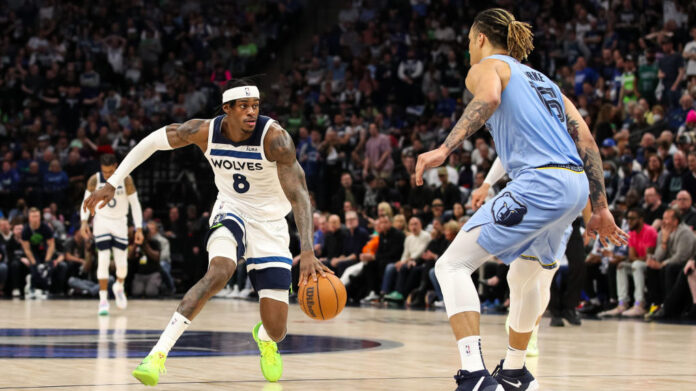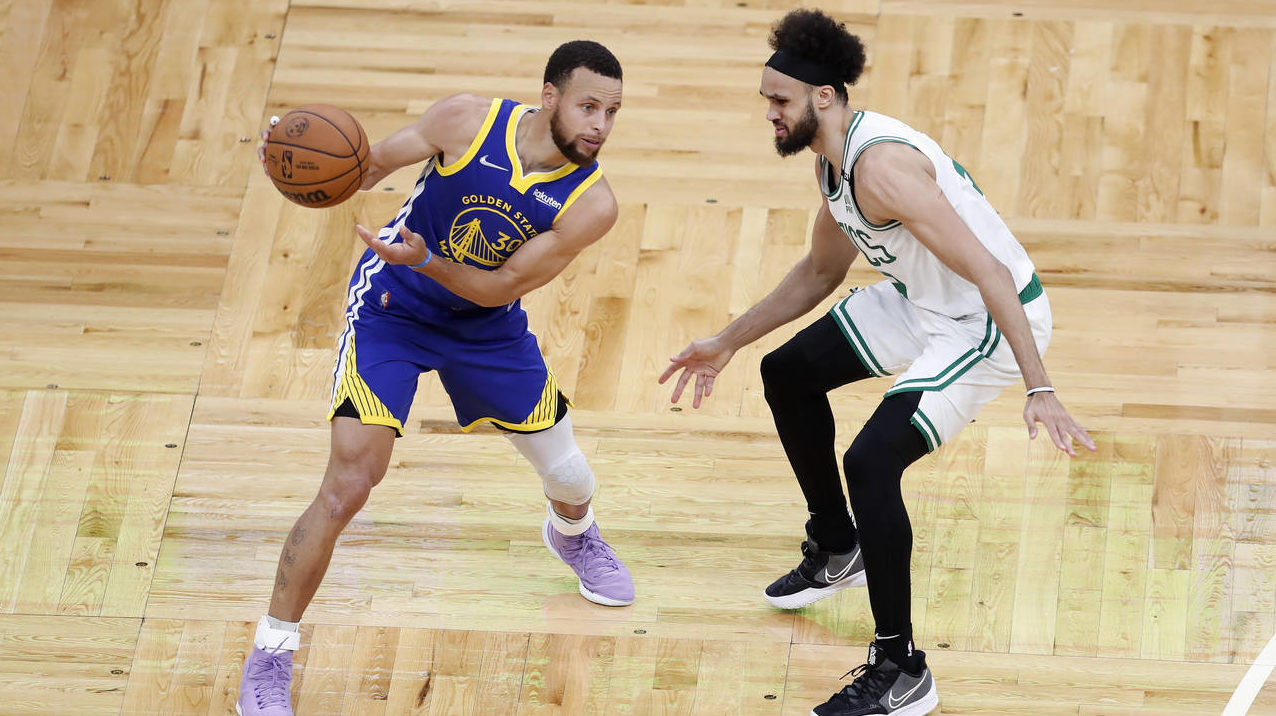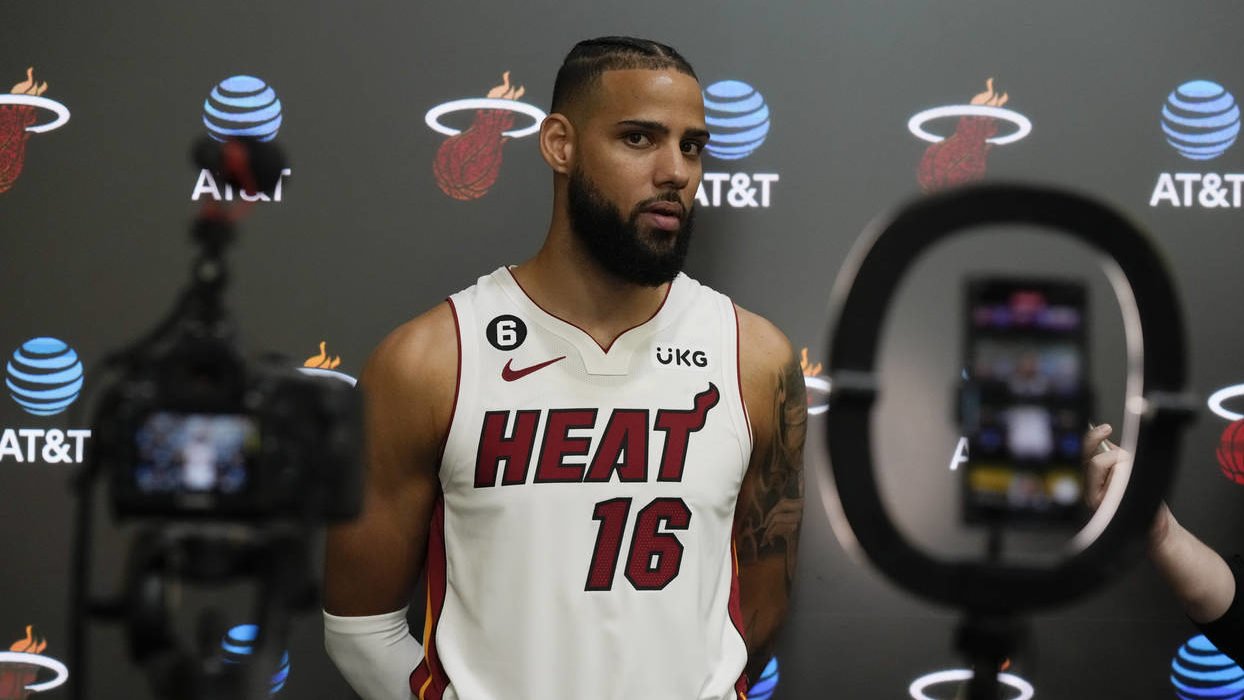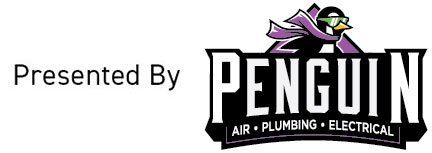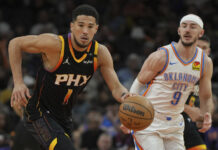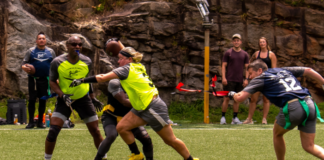Fulfilling a trade request is no easy job for an NBA team.
Jae Crowder and the Phoenix Suns mutually agreed he not join the team for training camp that begins this week, and now it’s on either his representation or his current team to find a solution.
Finding a taker for a 32-year-old making $10.2 million in the final year of his current deal is tricky. Crowder will be most enticing to winning teams who will value his strong defensive profile and attitude while overlooking his ups-and-downs as a shooter.
His former teams know this about Crowder, who put up 9.4 points, 5.3 rebounds and 1.9 assists while providing a lot more as a leader, especially on the defensive end.
According to The Athletic’s Shams Charania, Dallas, Miami, Boston, Memphis and Utah are potential landing spots, though the Jazz is the one team rebuilding instead of contending.
For the Suns in win-now mode, we assume a return package will need to include at least one plug-and-play rotation player considering Crowder started 67 games last year and played 28 minutes per.
And before we get into it, let’s set expectations here: the Suns getting someone of equal value is going to be a long shot unless Crowder is only a part of a much larger trade.
Utah Jazz
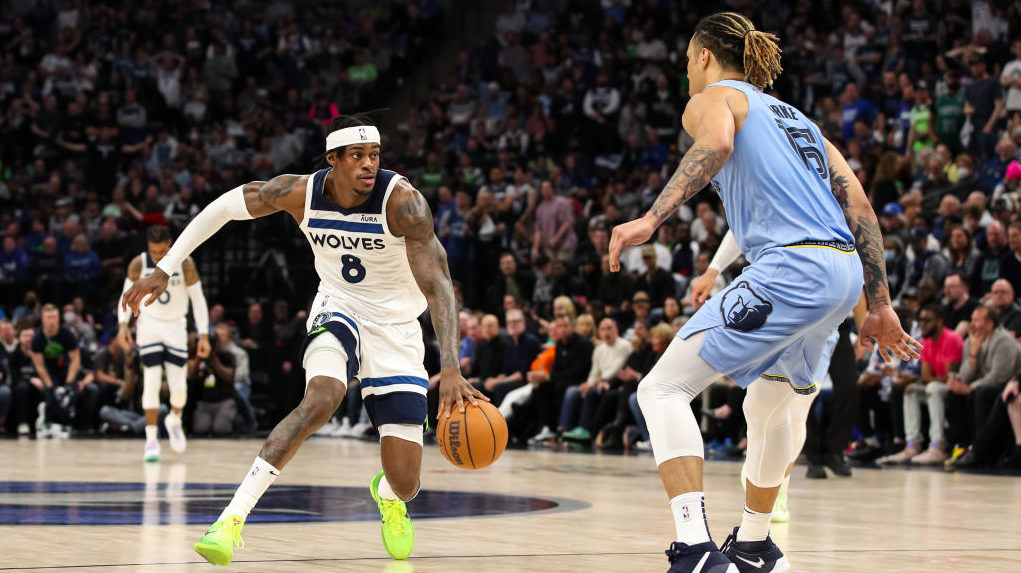 (Photo by David Berding/Getty Images)
(Photo by David Berding/Getty Images)
No Jazz player has a high chance of being with the franchise if we look three years down the road. There are still many avenues to work out a trade with this team even after reported Suns target Bojan Bogdanovic got dealt to the Detroit Pistons.
According to Arizona Sports’ John Gambadoro, Phoenix was also hoping in a Bogdanovic trade to nab Jarred Vanderbilt (6.9 points, 8.4 rebounds. 1.3 assists). He came to Utah in the Rudy Gobert trade, and the 23-year-old was a key defensive presence for a Minnesota team that eeked into the postseason.
Looking elsewhere, veteran Rudy Gay would also slide right into a backup 4 role. Combo guard Nickeil Alexander-Walker has said he looked up to Devin Booker and has play-making equity to go with some unsightly shooting statistics. And it would obviously be a shot in the arm if the Suns found a way to nab Sixth Man of the Year candidate Jordan Clarkson (16.0 points, 2.5 assists) in a more complex trade.
Utah has a few trade exceptions to make trades easier to work out.
Here’s where this gets tough: The Jazz are the only team on this list that wouldn’t fit as a squad Crowder will help. Phoenix likely would have to give up draft capital to get a deal done.
Dallas Mavericks
Additions of Christian Wood and JaVale McGee shake up a Mavericks frontcourt that relied so heavily on small-ball a year ago.
Even with that small-ball, rim-roller Dwight Powell (8.7 points, 4.9 rebounds) saw limited minutes deep into the playoffs against Phoenix and Golden State. He’s a fine backend rotation option who would come close to his 67% shooting playing with a guy like Chris Paul.
Digging deeper on the roster and we find 6-foot-10 shooter Davis Bertans, who seems likely to be further phased out of the rotation. He’s three years removed from averaging 15.4 points and is a career 40% three-point shooter with the Washington Wizards. Would Phoenix play him with fellow backup big Dario Saric? Or instead of Saric if they need a more aggressive scorer?
Unlike Powell, Bertans makes too much money and can’t be had for Crowder straight up.
Memphis Grizzlies
Dillon Brooks (18.4 points, 2.8 assists, 43% shooting) is a player you hate to play against but would love as a teammate. His trigger happiness — 28 minutes yielded 16 shots a game last year — does not sound very much like a Suns player, though. Notably, he’s on an expiring contract that could be swapped easily for Crowder’s salary. But Brooks is a big part of what Memphis does.
More realistic options could include Valley product Brandon Clarke, an athletic but undersized rim-roller whose three-point shot has regressed instead of developed, tanking the hopes he would become a more dynamic offensive option. He and a smaller contract could be exchanged to add Crowder to a core that should compete to go deep into the postseason.
Memphis drafted well this offseason, taking Jake LaRavia and David Roddy to join a long list of potential future contributors at both forward slots. Clarke is entering a contract year unless he comes to terms on an extension in the next month, so finding value for him could be on the Grizzlies’ minds.
Boston Celtics
This is a messy situation for a multitude of reasons, and thinking a team coming off an NBA Finals appearance would give up anything of note — even for a proven veteran like Crowder — would be surprising. Let’s play this game, anyway.
From the Suns’ point of view, targeting Grant Williams (7.8 points, 3.6 rebounds, 41% 3FG%) makes tons of sense. He proved himself to be a damn near elite shooter at the power forward spot during Boston’s playoff run, is a low-key solid defender and from a personality standpoint fits the Suns’ DNA to a T.
But he’s making just $4.3 million next year, meaning Phoenix would need to include salary, another team would get involved or Boston must use one of its available trade exceptions to work out a deal. There is a 95% chance the Celtics value Williams’ long-term potential, potential extension price, better shooting and age over Crowder.
Combo guard Derrick White (13.2 points, 4.9 assists, 41 FG%) fits a bigger need for the Suns. His shooting is suspect, but he is a smart playmaker who doesn’t turn the ball over and can be a pest on defense (probably take with a grain of salt how he looked in the NBA Finals against Wardell Stephen Curry).
Boston’s addition of Malcolm Brogdon this offseason and White’s salary of three years left that increases from the $16.4 million made this coming season are reasons why the Celtics could cost-cut with such a move. But Phoenix might not want to commit to such financial constraints down the road, either.
Miami Heat
Miami is not exactly a team worried about wiping salaries off the books, but if the Heat had to be before star Tyler Herro gets his extension, let’s start with Duncan Robinson. Indeed, he started 68 games last year and in 26 minutes per had a relative down year at 37% three-point shooting on nearly eight attempts a night. You can dream of him joining a Suns bench unit that is spaced out by Saric, Cam Payne and Landry Shamet — or might need more gravity out at the three-point stripe if non-shooters like Josh Okogie are part of the rotation.
The catch is Robinson has four years left on his contract that starts at $16.9 million and approaches $20 million. The salaries also don’t align for a one-for-one trade.
Wing Caleb Martin (9.2 points, 3.8 assists, 51 FG FG% and 41 3FG%) is the other name of intrigue if you’re Phoenix. He’s tough as nails, but also efficient and selective with his scoring. His catch is he is not trade-eligible until mid-January.

